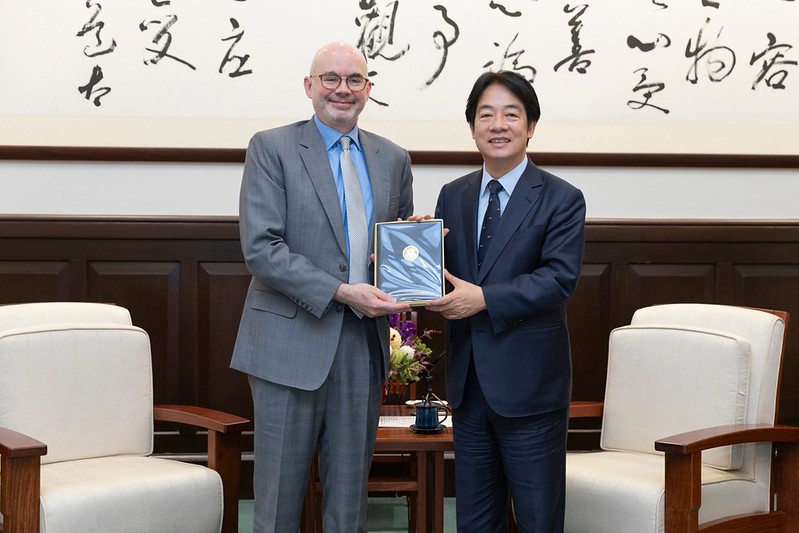On Wednesday, the new head of the US’s de facto embassy in Taiwan vowed to President William Lai Ching-te that the US would provide strong military support for the island amid rising tensions between Washington and Beijing.
“First of all, and the most important thing, the US will strongly support Taiwan’s self-defense capabilities,” said Greene, who took his post as the head of the American Institute in Taiwan (AIT) on Monday. “We both have common and long-term interests in peace and stability over the Taiwan Strait.”
According to Taipei Times, Greene touted the 15 arms sales for Taiwan that have been approved under the Biden administration. Last month, the State Department approved a $360 million sale for hundreds of armed drones and missile equipment.

The Biden administration has also taken the unprecedented step to provide military aid to Taiwan, which started in 2023. Since Washington severed diplomatic relations with Beijing in 1979, the US has always sold weapons to Taiwan but never financed the purchases or provided them free of charge.
The administration has also taken steps to increase diplomatic support for Taiwan, which has also been reflected by an increase in congressional visits. These steps are being taken in the name of deterrence, but they have just increased tensions, as China has significantly stepped up military activity around Taiwan in response.
When Greene was the deputy chief of the AIT in 2021, he explained how the US began to view Taiwan differently during the Trump administration. He said when he first worked at the AIT 19 years prior, “everything we did related back to cross-Strait issues and how Taiwan fit into the US-China relationship.”
“In contrast, these past three years, our efforts have been overwhelmingly focused on deepening the bilateral US-Taiwan relationship,” Greene said. “This reflects a fundamental change in the US-Taiwan relationship. The United States no longer sees Taiwan as a ‘problem’ in our relations with China, we see it as an opportunity to advance our shared vision for a free and open Indo-Pacific.”
A “free and open Indo-Pacific” is a term the US has employed in recent years that essentially means a region where the US is the dominant military power and has more influence than China.


